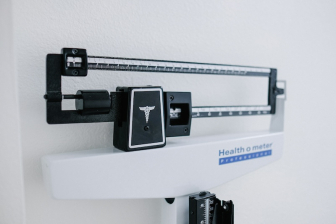Defining ocrelizumab's role within the MS treatment landscape
Last updated: 01 November 2019

You can legally access new medicines, even if they are not approved in your country.
Learn howGaining a deeper understanding of Ocrevus (ocrelizumab) for the treatment of MS through clinical trials

Gaining more information on Ocrevus (ocrelizumab) for the treatment of both MS and PPMS
Ocrevus (ocrelizumab) was approved in the US by the FDA in March 2017 for the treatment of adults with relapsing or primary progressive forms of MS, based on three clinical trials.
The efficacy of ocrelizumab for the treatment of relapsing forms of MS was shown in two clinical trials where 1,656 patients were treated for 96 weeks. Both studies compared ocrelizumab to another MS drug, Rebif (interferon beta-1a). In both studies, the patients receiving ocrelizumab had reduced relapse rates and reduced worsening of disability compared to Rebif.[1]
In a study for PPMS, 732 patients were treated for at least 120 weeks, those receiving ocrelizumab treatment showed a decrease in disability progression compared to placebo.[1]
Ocrelizumab treatment is administered by a healthcare provider using a needle in a vein known as intravenous infusion. The first two infusions are given 2 weeks apart followed by an infusion every 6 months.[2]
Recent analysis shows that ocrelizumab will prove a challenge for other disease-modifying treatments for relapsing MS, and is now favoured by many, with neurologists predicting that ocrelizumab would become the next drug for approximately 20% of their relapsing MS patients.
For primary progressive MS patients, ocrelizumab is currently the only approved treatment and is therefore, the main drug of choice for many.
But the research on this treatment is far from over as several clinical trials sponsored by its developer Genentech or parent company Roche, are ongoing to find out its true potential.
Multiple Sclerosis News Todayspoke indepthly to Dr. Hideki Garren — Group Medical Director of Ocrelizumab for Genentech (Roche) — about new understandings that these clinical trials might offer. We have summarised the trials below.
Ocrevus (ocrelizumab) among patients who failed to respond to an earlier disease-modifying treatment
Two ongoing large Phase III trials (where new treatments are compared with the best currently available treatment) taking place in the US (NCT02637856), and Europe and Australia (NCT02861014), will investigate the safety and effectiveness of ocrelizumab among patients who failed to respond to an earlier disease-modifying treatment.
Patients will receive a maximum of four treatment rounds, and the trial will measure the percentage of participants who do not experience a relapse, new or enlarged lesions, or disability progression at 24 weeks.
Multiple Sclerosis News Today reported that the enrolment for the trials is “progressing extremely well.” The European/Australian trial data is expected by December 2020, while the US trial will be completed in 2019.
Early-stage relapsing investigation
Another Phase III trial sponsored by Roche (NCT03085810) will evaluate the effectiveness of ocrelizumab on patients in the early stages of relapsing-remitting MS by measuring the progression of disability, and disease activity over a four-year period.
The aim of the trial is to expand on the results of the Phase III OPERA trial which demonstrated the benefits of ocrelizumab for early-stage relapsing patients. The trial will gather further data on this group, with over 600 patients with an MS diagnoses of three years or less, and will mainly focus on disease progression, relapse rates among other outcome measures such as lesion developments, and disability.
The finalised trial data is expected in 2022.
Vaccination study
The use of vaccinations is not recommended as per the prescription label as ocrelizumab works by depleting CD20-type B-cells, which are also known to play a role in the immune system’s response to a vaccination.
It is not certain yet if vaccines lose their ability to trigger an immune response, but the Phase III clinical trial (NCT0255868) based in the US and Canada aims to explore this relationship.
The trial will focus on four vaccines, with the focal point being the tetanus vaccine. Although the study began in 2015 and is no longer recruiting, the final trial results will not be completed until 2022.
How Ocrevus (ocrelizumab) works

While these trials focus on the drug’s effects in specific patient groups, one main study aims to create a deeper understanding of the interaction between ocrelizumab and the disease.
The open-label Phase III trial (NCT02688985) will examine, for the first time, patient’s cerebrospinal fluid, a body fluid found in the brain and spinal cord. The trial will recruit 104 patients with both relapsing and primary progressive disease across 19 locations including the US, Germany and Sweden.
This trial will be the first to measure cerebrospinal fluid in order to assess the processes taking place in the brain. It also aims to evaluate the presence of anti-drug antibodies which have the potential to prevent ocrelizumab from doing its job.
The trial requires patients to undergo two spinal taps, and the study is expected to be completed by September 2018.
For more information about this clinical trial visit clinicaltrials.gov.
Real patient stories about the results of using Ocrevus
Reported by Multiple Sclerosis News Today, two American patients using Ocrevus have reported significant improvements. In the article called Two Women with Different Forms of Multiple Sclerosis Call Ocrevus a Lifesaver it is reported that two women MS sufferers both declare Ocrevus to "have dramatically improved their lives." One patient has the relapsing-remitting form and the other has progressive multiple sclerosis.
Deeper knowledge of treatment effects
It is through clinical trials that the long-term efficacy and safety of ocrelizumab can be determined. These studies uncover information and evidence to further understand the causes of MS, and how to improve the development of innovative treatments for MS such as ocrelizumab.
The finalised data of these trials will define ocrelizumab’s role within the MS treatment landscape. everyone.org will ensure to update all details of these clinical trials as soon as they are published.
For more information on accessing ocrelizumab, please see our ocrelizumab information page where you can contact a member of our customer support team. Alternatively, you can contact us via [email protected]or on +31 208084414.
References
1. https://www.fda.gov/newsevents/newsroom/pressannouncements/ucm549325.htm
2. https://www.fda.gov/Drugs/InformationOnDrugs/ucm553004.htm




